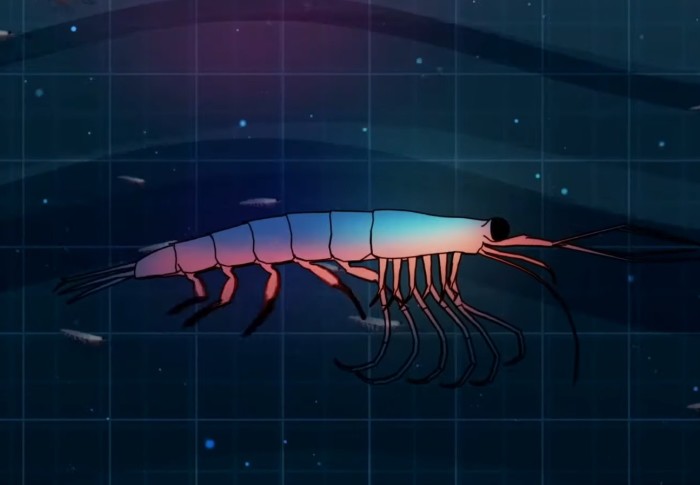Krill thriller and lively lungs: News from the College

Here’s a batch of fresh news and announcements from across Imperial.
From the importance of krill in controlling climate change, to tracking the ‘new normal’ in healthy lung function, here is some quick-read news from across the College.
Krill thriller
WWF hosted an event for UN delegates at COP26 showcasing how Southern Ocean ecosystems store carbon. During the event a short animation was premiered that shows how faeces released by Antarctic krill transport large amounts of carbon to the deep ocean, and why Antarctic krill and animals like them need to be preserved to help protect our climate.
The animation is based in part on a study led by Dr Emma Cavan, a research fellow from Imperial’s Department of Life Sciences (Silwood Park), which explained the role of Antarctic krill in carbon and nutrient cycles. Dr Cavan, along with some of her UK collaborators, advised WWF on the science content for this animation, and she attended COP26 to promote the importance of marine ecosystems in our climate.
See this blog on 9 facts about krill to learn more.
Keeping freshwaters fresh
 Professor Guy Woodward, Deputy Head of Imperial’s Department of Life Sciences (Silwood Park), helped draft a statement with the Freshwater Biological Association about the threats to freshwaters from climate change.
Professor Guy Woodward, Deputy Head of Imperial’s Department of Life Sciences (Silwood Park), helped draft a statement with the Freshwater Biological Association about the threats to freshwaters from climate change.
The statement says that freshwaters are both disproportionately important and disproportionately at risk from climate change and other human pressures. Although freshwater ecosystems host ten times the biodiversity per area than the land and the sea, they are often overlooked.
Freshwater vertebrate populations are declining at a rate almost double that of those on land and in the sea surface, while the planet’s lakes are warming more rapidly; on average at almost three times the rate of the latter.
The authors call for world leaders to recognise the extraordinary importance of freshwaters alongside the land and sea, a “tiny change has huge implications for the natural world and our place in it.”
Climate policies
 Direct and clear benefits of climate action incentivise local decision-makers to take action on climate change, and lead to better health for city inhabitants.
Direct and clear benefits of climate action incentivise local decision-makers to take action on climate change, and lead to better health for city inhabitants.
A new report by researchers including Imperial's Dr Audrey de Nazelle and Aina Roca-Barcelo for the International Society of Environmental Epidemiology (ISEE) and the International Society of Urban Health (ISUH) says there is abundant evidence for health co-benefits of climate change mitigation and adaptation strategies but this is rarely considered in policymaking or city planning efforts, such as urban land use planning.
Dr de Nazelle presented the report at an official COP26 side event, arguing that co-producing scientific knowledge, alongside a system-thinking approach, offers a way towards better health through climate action.
Raising the bar
 Clinical baselines for lung function are essential in diagnosing and grading respiratory conditions. But is the bar for what’s ‘healthy’ set too low?
Clinical baselines for lung function are essential in diagnosing and grading respiratory conditions. But is the bar for what’s ‘healthy’ set too low?
In a review of 10 European studies, including almost 250,000 people, researchers found two key measures of lung capacity increased steadily over the last century, with average values now higher than expected.
Dr James Allinson, from the National Heart and Lung Institute at Imperial, says the trend – likely due to improvements in diet, living conditions and healthcare – means clinicians may be underestimating healthy lung function and the impact of diseases, such as COPD.
“Only by appreciating the shift in ‘normal’ values can we hope to accurately interpret measurements made today,” said Dr Allinson. “Otherwise, we may not recognise disease or how badly it is affecting the lungs.”The full findings are published in Lancet Respiratory Medicine.
–
Want to be kept up to date on news at Imperial?
Sign up for our free quick-read daily e-newsletter, Imperial Today.

Article text (excluding photos or graphics) © Imperial College London.
Photos and graphics subject to third party copyright used with permission or © Imperial College London.
Reporter
Andrew Youngson
Communications Division
Ryan O'Hare
Communications Division
Hayley Dunning
Communications Division
Simon Levey
Communications Division